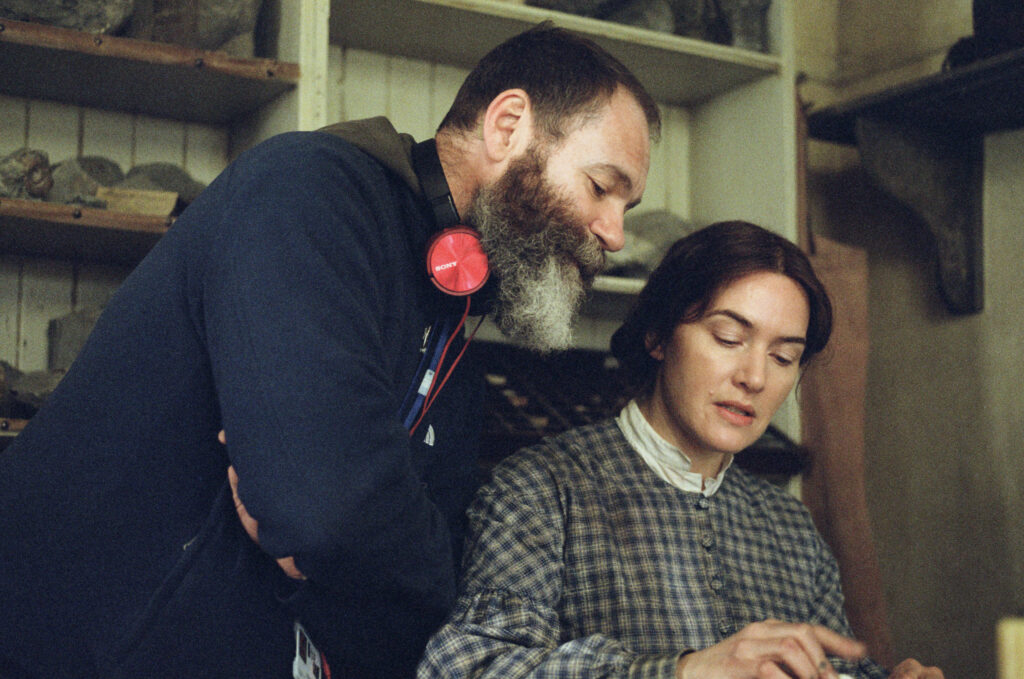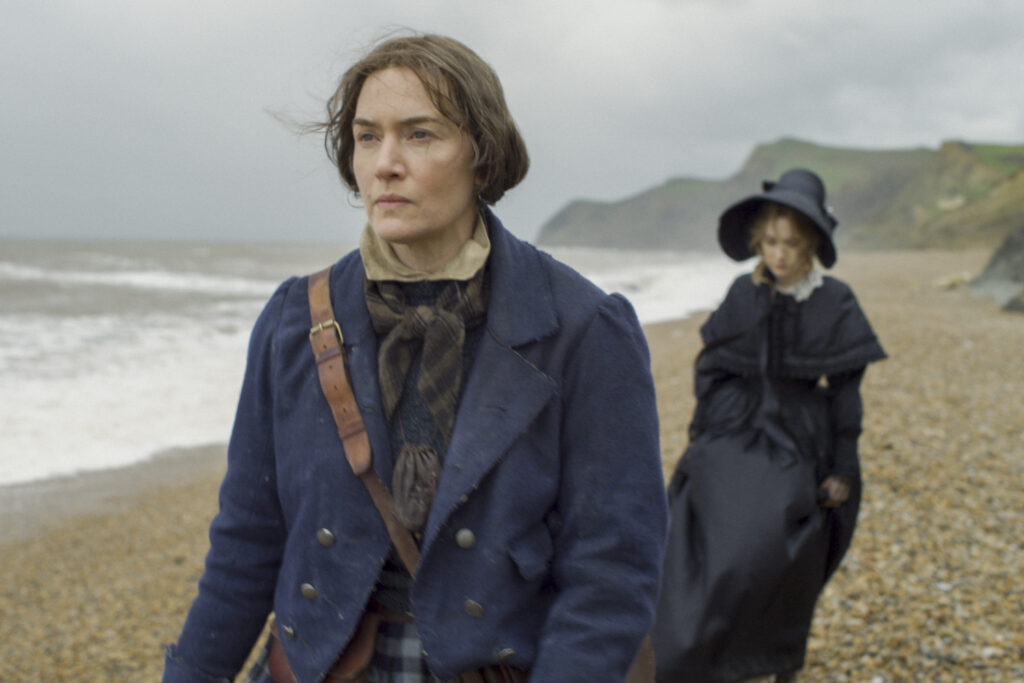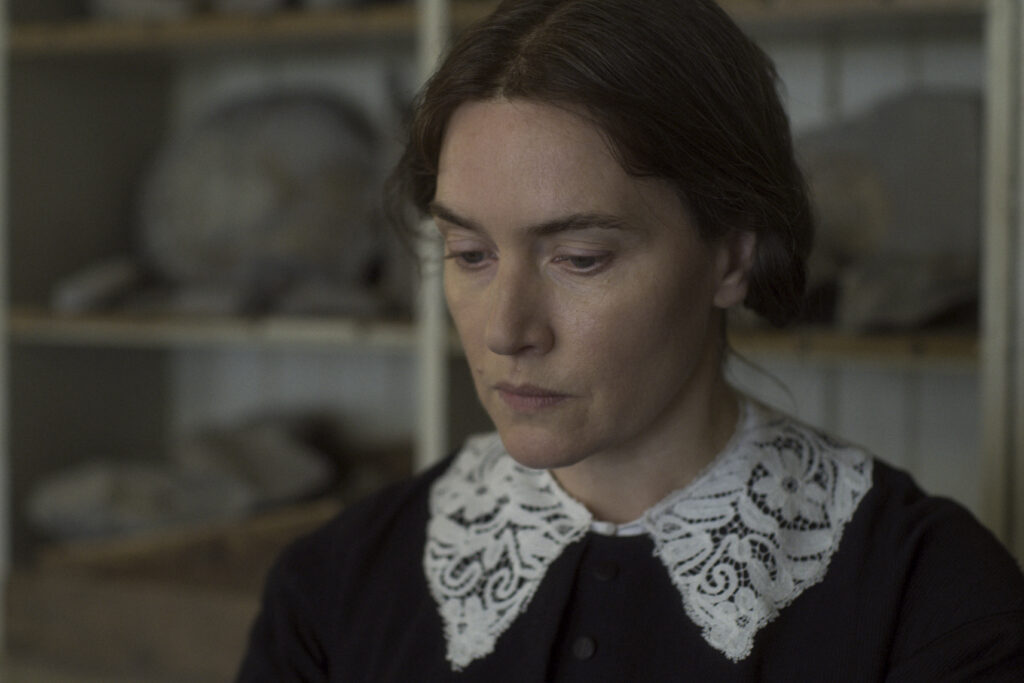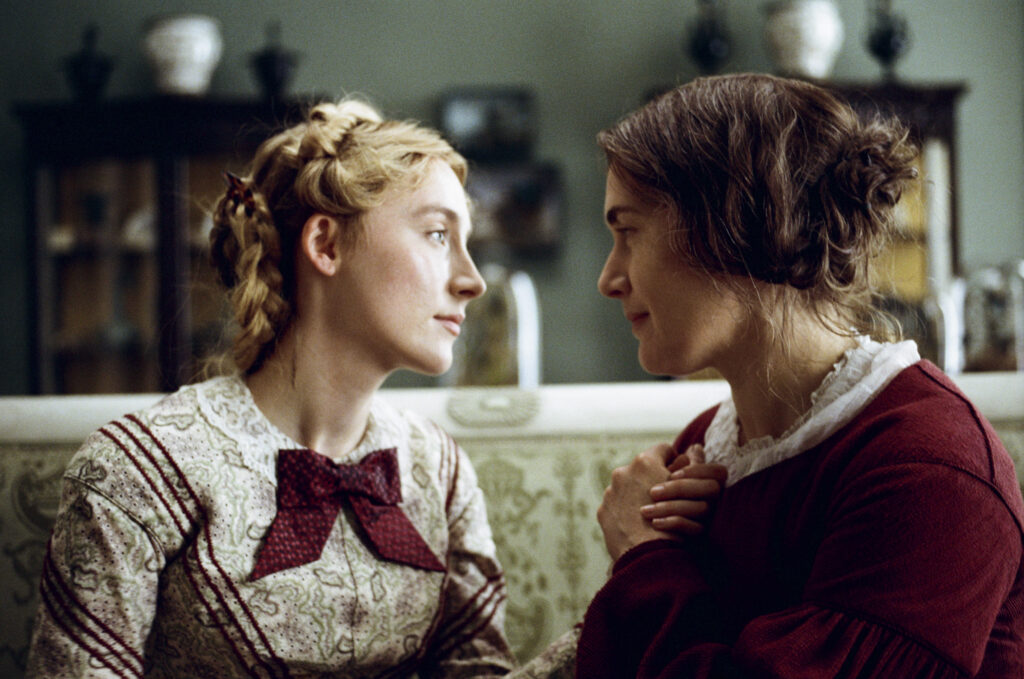Getting to the heart of new movie, ‘Ammonite’
Let’s talk about the new Kate Winslet and Saoirse Ronan movie, and the ongoing drama around lesbian representation.
This right out of the gate: I am not going to hyperlink to any of the numerous lesbian blogs or social media accounts expressing disappointment in this film for not being…lesbian enough; for not being Portrait Of a Lady On Fire enough; and for not being the mythical rainbow unicorn of a movie we all hope will one day materialize on the horizon of lesbian culture. Clearly, that film won’t get made until we pick up a camera ourselves — and a couple of out LGBTQ actresses.
I’m just going to say what I think. And I say there is a lot to love about this movie. Is Ammonite the best movie about lesbians ever made? No. But it’s intriguing and layered — a better film than most reviews have conveyed. And before I go on to address the burden of lesbian representation, here are a few things that I especially liked about the film:
Ammonite is written and directed by Francis Lee, a gay male auteur who took the time to pluck an obscure woman from the margins of British history and blow her up into a living, breathing lesbian character. We don’t absolutely know if Mary Anning, a British paleontologist who lived in poverty, was a lesbian or would have self-identified as such, but Lee likes to think she was and I’m fine with that — and I have to be unless I turn a blind eye to all the other identity revisionism that is being harnessed purposefully of late.

Ammonite stars two A-list actresses who — any actual Sapphic experience in their personal lives aside — are brilliant, multiple Oscar-nominated artists who give their all to these two lonely and repressed female characters. Kate Winslet is terrifically opaque as Mary Anning, and Saoirse Ronan is her usual luminously incipient self as Charlotte Murchison, a young bride suffering from depression through lack of intimacy and childlessness, who is entrusted to Mary’s care.
Fiona Shaw as Mary’s ex, Elizabeth Philpott. Can we just take a moment to acknowledge that anything Shaw is in is better for it? I certainly wanted to know more about Elizabeth, and why she and Mary broke up. But a scene where a vulnerable and desperate Mary goes to Elizabeth, coins in hand, to buy balm for her ailing, soon-to-be beloved Charlotte indicates how much Mary has riding on her sudden feelings.
The art direction, production design, sound design, and visual clues which create a layering of meaning that gives the minimalist, quite underwritten script complexity that stays with you after the film has ended. Yes, the fossil metaphor is overdone, but it’s nevertheless apt. In an era when we are all asking for the aforementioned revisionism to redress the sins of white male historical record, here is a big hefty chunk of it.

The love scenes. If you are bored by all the bonnets and corsets and the exhausting physical effort of exhuming fossils in bleak weather that consumes endless minutes of the narrative, just hang in there until oral sex in the kitchen — and the penultimate love scene when a lifetime of repression explodes. I really did feel this scene was the highlight of the film, and not for nefarious reasons. It’s just very well done, with the small corporeal details and the deft choreography unfurling as genuine feeling without any of it being siloed through anyone’s gaze. This is the film’s great revelation.
Winslet says that filming the main love scene was one of the highlights of her professional life. On a recent panel about Ammonite she revealed, “It was one of the most joyful, special experiences of my entire career actually, filming that scene, I have to be honest, it was quite extraordinary.” Part of why it was extraordinary was her discovery that she could take charge rather than be “taken,” as she had previously felt in heterosexual love scenes. To see Winslet as a tetchy top is absolutely worth the rental fee.

And so to the issue of lesbian representation. As empathetic as Lee is, as female-dominant as the film crew was, as much as Lee collaborated with Winslet on building Mary’s character, and as enthused as Winslet was about scripting her sex scenes with Ronan — what the film is missing is the unique insight that would be afforded by a queer woman. It shows particularly in the scene where Charlotte expects Mary to live inside the doll’s house life in which she herself is trapped.
While I understood their problem from a historical perspective — same-sex attracted women in Victorian England — and while each actress does her best to convey their character’s wants, I wasn’t convinced by the words coming out of their mouths and at that moment I longed for a script written by a lesbian who has struggled her entire life to persuade herself, and her partners, and the rest of the world, that this love matters now and shouldn’t be discovered after the fact, a mere curio sitting on a dusty shelf somewhere a hundred years from now.
Ammonite almost gets there. It comes so close. But the lesson in metaphor is often the same as its limitation: Mary Anning kept hunting fossils because she couldn’t transform her own life. But we can.
Ammonite is playing on demand now. Watch the trailer here.






